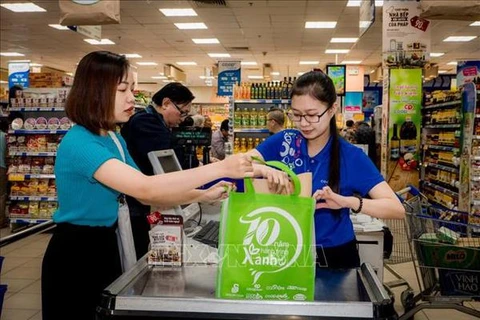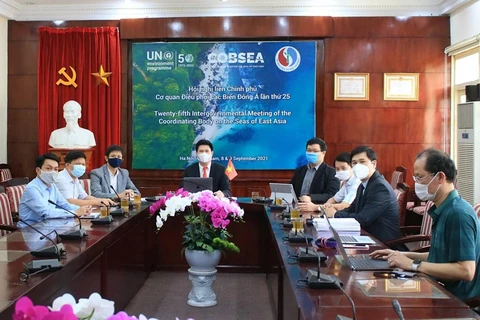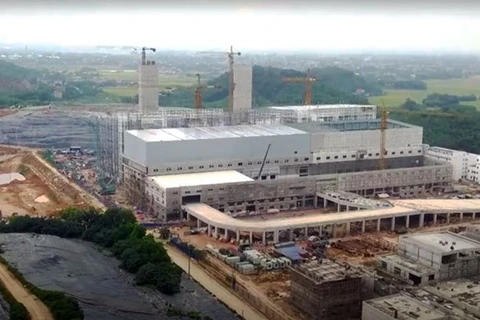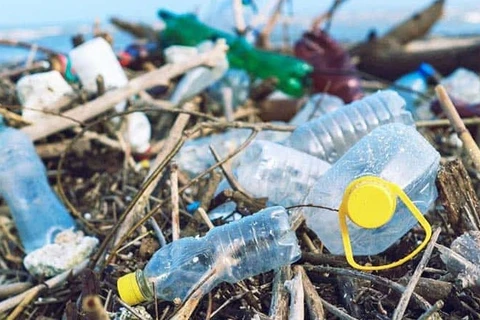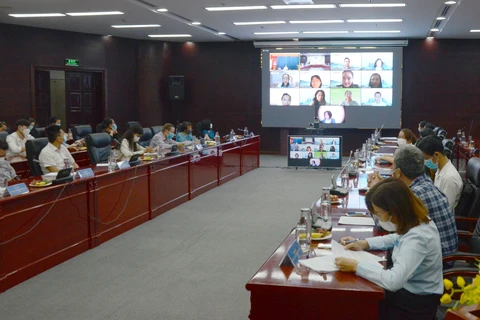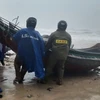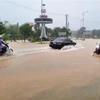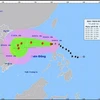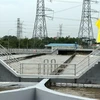Hanoi (VNA) – While affirming the role of extended producer responsibility (EPR) in supporting waste treatment and the circular economy is closely linked to each other, many experts believed that the Ministry of Natural Resources and Environment (MONRE) needs to come up with a roadmap for the implementation of EPR. It is an effective tool to help Vietnam solve the ocean waste problem, as well as form a modern "green" recycling industry.
According to Phan Tuan Hung, Director of the MONRE’s Legal Affairs Department, there is no circular economy without EPR.
In that spirit, the 2020 Law on Environmental Protection and the decree guiding the implementation of a number of articles in the law specifying the producers’ liability to recycle and treat their abandoned products and packages are among the tools to help restructure the waste management system.
“Some people said EPR is a burden on businesses, but from a broader perspective, in our opinion, EPR is an opportunity to share the burden of the parties. It is a chance for businesses to show their responsibility to the community and the environment,” Hung said.
EPR is also the foundation for forming a modern recycling industry that puts waste sources into environmentally friendly recycling facilities and helps Vietnam solve the problem of ocean waste, he added.
Echoing his views, Fausto Tazzi, Vice Chairman of the Packaging Recycling Organisation Vietnam (PRO Vietnam) said the EPR mechanism has been applied not only in developed countries but also in developing ones.
In fact, most large enterprises want to develop sustainably and are ready for resources to build sustainable and environmentally friendly production.
EPR is the best way to ensure that business expenses are properly allocated and that waste can be managed at its end state. However, the expert emphasised the importance of having an extended responsibility of all parties because the collection and recycling of waste depends on consumer behaviour as well as necessary improvements in waste management and government administration.
He also said that the strict enforcement of regulations relating to EPR does not only show the responsibility of enterprises for the environment but also helps boost their competitiveness. Therefore, from a business perspective, Tazzi supports the development and enforcement of EPR rules in Vietnam.
 It is necessary to have a thorough and reliable survey of the actual recycling rate in Vietnam to set forth a suitable recycling rate, many experts said. (Photo: VNA)
It is necessary to have a thorough and reliable survey of the actual recycling rate in Vietnam to set forth a suitable recycling rate, many experts said. (Photo: VNA) An appropriate recycling rate needed
Although EPR is considered to be the driving force to promote the circular economy, many experts hold that it is necessary to have a thorough and reliable survey of the actual recycling rate in Vietnam to set forth a suitable recycling rate. If the rate is set lower than its actual rate, EPR will not achieve the desired target. It also might not be feasible if the rate is set too high.
According to Tazzi, Vietnam shouldn’t set the obligatory recycling rate too high because it will have a big impact on the development plans of enterprises.
He said that it is essential for the country to carry out each step in the EPR implementation roadmap, starting with an appropriate recycling rate and then increasing gradually in accordance with regulations.
EPR is an effective and inexpensive method, but it needs to be implemented in a step-by-step approach, with a strong and solid foundation, Tazzi said.
Hoang Duc Vuong, Head of the Recycled Plastics Unit at the Vietnam Plastics Association, said that the current mandatory recycling rate is still low, so the input products are not commensurate with the potential of Vietnam.
Vietnam has become the world's second largest importer of recycled scrap. The country has a great ability for recycling with more than two million workers engaged in the industry and 70 establishments licensed for operation.
Nguyen Hong Phuong, a legal expert, said the enforcement of EPR regulations would be the best way to mobilise the responsibility of the community in waste collection and reducing garbage, as recycling activities in Vietnam only focus on gathering and recycling valuable products./.

